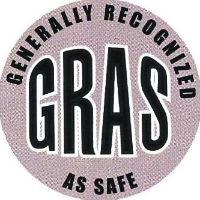35% of Food Additives Deemed Harmless were Evaluated by Manufacturer or Contractor Hired by Manufacturer

Are the additives in food really safe, even if the Food and Drug Administration (FDA) says so? A new study has raised questions about the experts who help to validate so-called “generally recognized as safe” (GRAS) additives.
A group of legal and medical professionals reviewed 451 GRAS notifications that were submitted to the FDA between 1997 and 2012. Out of these 451, 22.4% were made by an employee of an additive manufacturer and 13.3% by an employee of a consulting firm selected by the manufacturer—meaning 35% were determined by individuals who may have had a conflict of interest.
Another 64.3% of the safety assessments were done by an expert panel selected by either a consulting firm or the manufacturer.
“Between 1997 and 2012, financial conflicts of interest were ubiquitous in determinations that an additive to food was GRAS,” the authors of the study wrote. “The lack of independent review in GRAS determinations raises concerns about the integrity of the process and whether it ensures the safety of the food supply, particularly in instances where the manufacturer does not notify the FDA of the determination. The FDA should address these concerns.”
Additives labeled as GRAS include items such as carnauba wax, modified food starch, caffeine, monosodium glutamate, gum arabic, mineral oil and rosemary, among others.
Marion Nestle, a professor of nutrition at New York University who wrote a commentary to accompany the study published in the journal JAMA Internal Medicine, said companies frequently hire consulting firms to locate experts who will vouch for a new additive with the FDA.
“There are whole companies that are in the business of recruiting scientists to sign off on these things,” Nestle told USA Today. “That was one of the amazing findings of this paper.”
-Noel Brinkerhoff
To Learn More:
Conflicts of Interest in Approvals of Additives to Food Determined to Be Generally Recognized as Safe (by Thomas G. Neltner, Heather M. Alger, James T. O’Reilly, Sheldon Krimsky, Lisa A. Bero and Maricel V. Maffini, JAMA Internal Medicine)
Experts who decide on food additives conflicted (by Elizabeth Weise, USA Today)
Industry Has 'Undue Influence' In Vouching For Safety Of Food Additives, Study Finds (by Andrew Seaman, Reuters)
- Top Stories
- Unusual News
- Where is the Money Going?
- Controversies
- U.S. and the World
- Appointments and Resignations
- Latest News
- Trump to Stop Deportations If…
- Trump Denounces World Series
- What If China Invaded the United States?
- Donald Trump Has a Mental Health Problem and It Has a Name
- Trump Goes on Renaming Frenzy






Comments